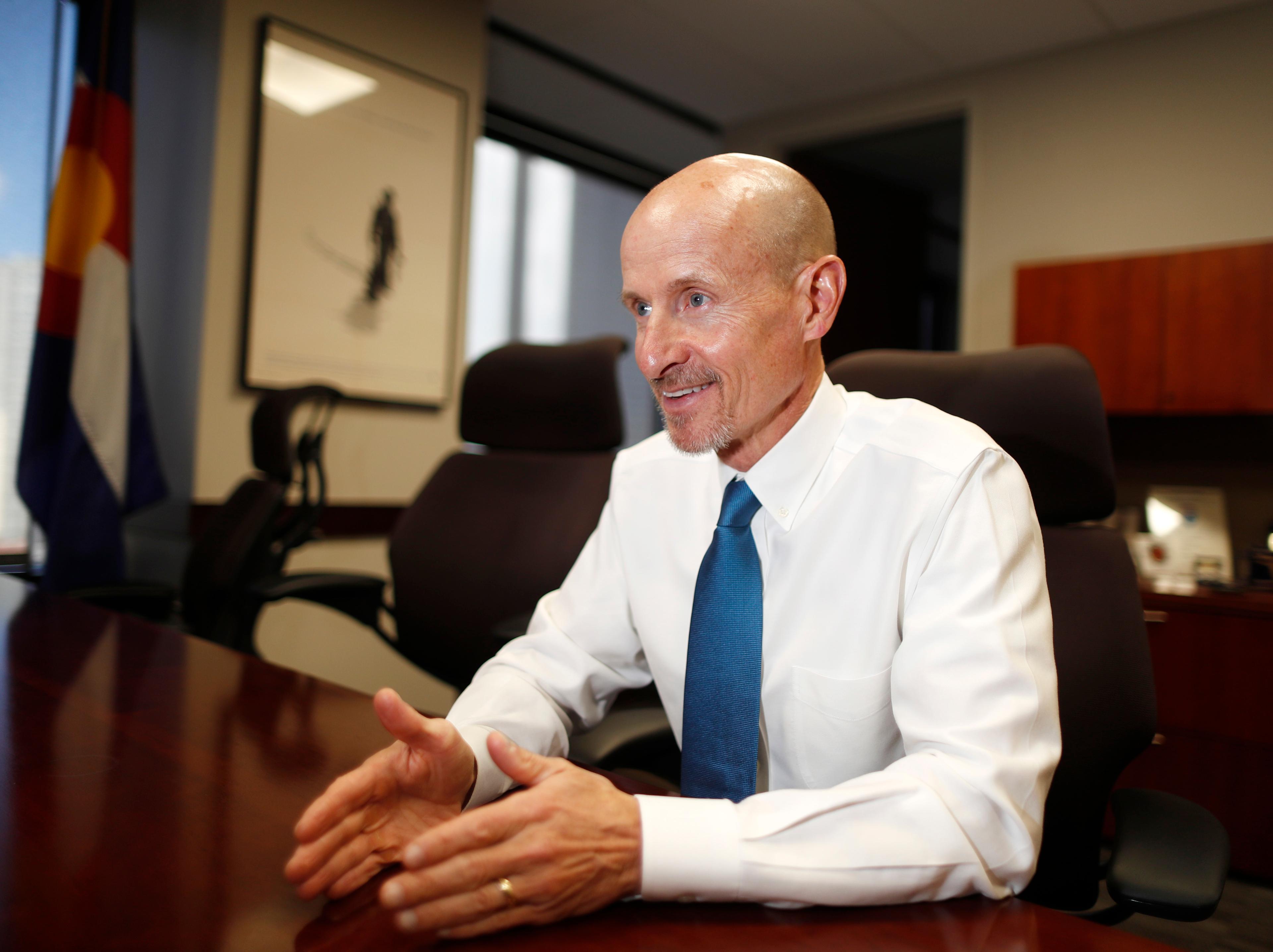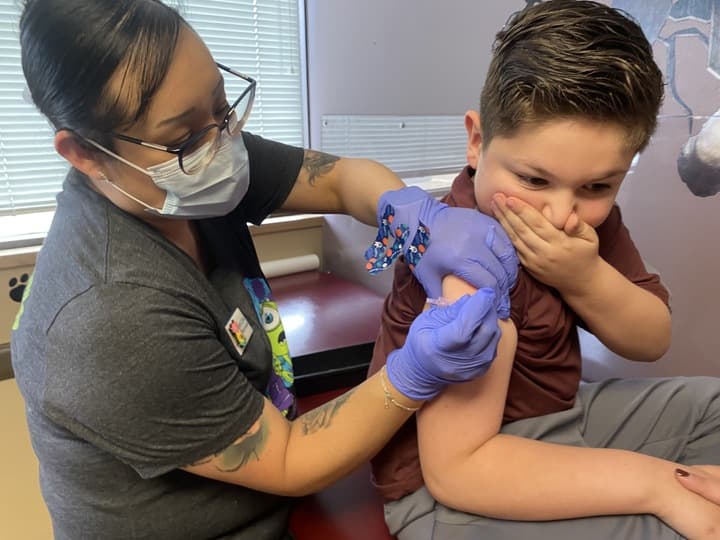

On his last day on the job, Colorado’s top federal prosecutor Bob Troyer said he believed helping local law enforcement agencies use data to be more precise in policing is among his biggest accomplishments.
The U.S. Attorney’s staff used a new kind of data analysis to find the doctors and pharmacies dispensing an abusive amount of addictive opioids. Troyer’s office helped prosecute seven doctors over the past couple of years who were abusing their prescription privileges.

“We can identify the pharmacies and the doctors that are real outliers in terms of the number of opioids they are prescribing, the distance the patients are traveling to the doctor or to the pharmacy,” Troyer said.
Troyer has led Colorado’s U.S. attorney’s office since 2016 and has worked in the office since 1999. During his tenure, he has most been known for attempting to balance a state constitutional law that legalized recreational marijuana with the fact it’s still illegal under federal law. Troyer was also outspoken about Colorado’s black market marijuana problem.
When asked on Thursday about Colorado’s biggest public safety threats, Troyer said the rural areas’ drug epidemics of both methamphetamine and opioids. In the cities, he said gun violence was the biggest problem.
- More: U.S. Attorney Bob Troyer Says State's Marijuana Laws Are Too Lax
- 6 Questions About Colorado's Interest In Suing Opioid Drug Makers
Troyer said his agency worked closely with local police to use data analysis—including information from cell phones—to pinpoint the most violent people, those who always “pull the trigger,” he said.
Finding the right people—rather than targeting an entire community—is less disruptive.
“We've really gotten away in our metro areas from militaristic policing where cops see a rise in shootings and they surge into a neighborhood and stop everyone from spitting on the sidewalk and running a stop sign,” he said. “Instead, we very quickly identify who the one, two, three most prolific trigger pullers are in that cycle of violence and get those people out of the community.”
As for his next plans? Crickets.
Troyer plans to start a cricket farm. The top prosecutor eats cricket powder himself, and said he believes insect protein will be part of the sustainable food system of the future with the increase in global warming.
“I think it will end up being a big part of the American diet in the next few decades,” said Troyer, a former commercial fisherman. “I’d like to get back to doing something with my hands and producing something concrete—and not just talking.”







